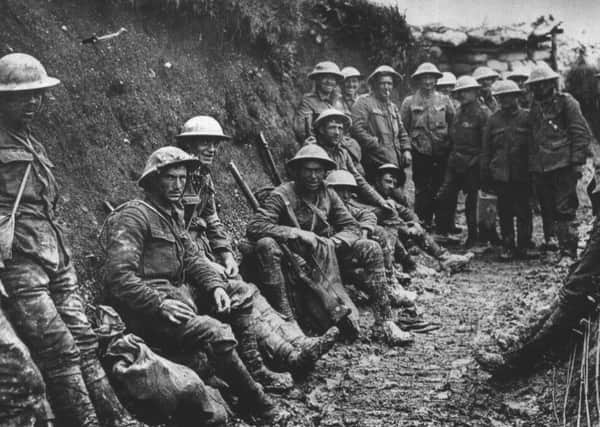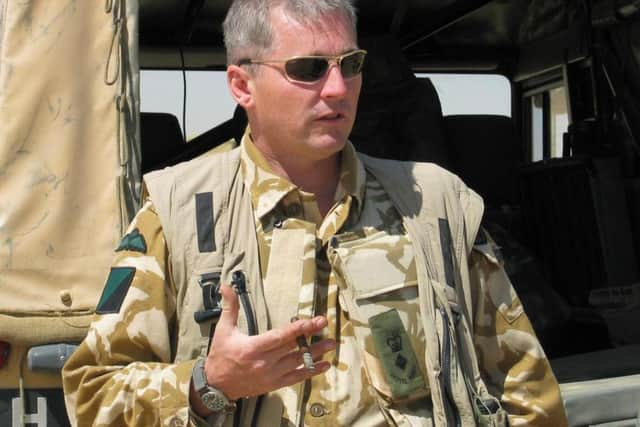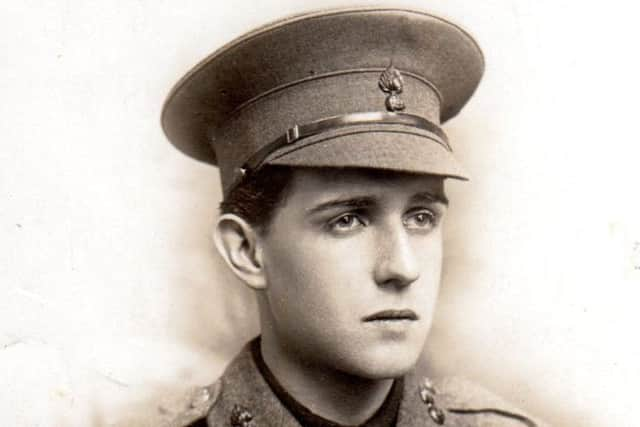Horror of Somme not lost on modern-day soldiers '“ Tim Collins


On the eve of the famous battle’s centenary, Colonel Tim Collins (retired) said volunteer soldiers - drawn from all walks of life - were the first in history to experience the carnage of “industrial warfare”.
Col Collins rose to prominence in 2003 for a speech he made to his Royal Irish Regiment soldiers they prepared for the invasion of Iraq.
Advertisement
Hide AdAdvertisement
Hide AdHe spoke passionately of respect for the Iraqi people and reminded his troops they were there as liberators rather than conquerors, and to be “magnanimous in victory”.


The current Royal Irish Regiment consists of recruits from both sides of the Irish border and across the Commonwealth. It can trace its roots back centuries and its name will forever be synonymous with the 36th Ulster Division and the Somme. In the first two days alone, the 36th suffered losses of 5,500 killed, wounded or missing. An estimated 2,500 had been killed.
The 55-year-old combat veteran set up the New Century specialist security company after leaving the army. A copy of his speech is reputed to hang in the White House.
“First and foremost this was the first ‘industrial’ war,” Mr Collins said.
Advertisement
Hide AdAdvertisement
Hide Ad“It was really the first time that the public - the Kitchener volunteer battalions - went into the mixer against the industrial warfare.


“The scale was huge. There had never been anything like it and hopefully there will not be anything like it again. No commander on either side had any solution to industrial warfare.”
More than two million British and Commonwealth soldiers were involved in the ill-fated, five month offensive along a front line spanning almost 20 miles.
Regiments raised in Canada, Australia, New Zealand and India fought valiantly at the Somme, but the battle had particular significance in the north of Ireland with the 36th Ulster Division’s losses affecting every town and village in the province.
Advertisement
Hide AdAdvertisement
Hide AdThe Somme offensive, which began on July 1, was designed to draw enemy troops away from the German all-out assault on the historically significant Verdun area.


“You have to focus on why it happened, in that it was to relieve pressure on Verdun. The [war] planners had said that it should be postponed until the 1st of August in order to get the necessary training done, but the French pointed out that the French army wouldn’t exist by August, so it had to go ahead then,” Mr Collins said.
The former Queen’s University graduate in social sciences said an affinity between the Irish regiments that fought at the Somme and the soldiers of today remains, but that society in general has changed dramatically.
“The antecedent regiments, right up to the modern First Battalion of the Royal Irish Regiment, continues, so yes, there is a line right through it.
Advertisement
Hide AdAdvertisement
Hide Ad“I think the communities closed around [those returning from the First World War]. Certainly when my grandfather came back the communities looked after each other. There must have been post traumatic stress disorder but it was dealt with within communities. I think community spirit was much stronger, and the reason that we have so many problems in the modern world, and the reason we have to resort to medical practice, is that communities aren’t as strong, or anywhere near as close, as they were at that time.”


However, Mr Collins said he doesn’t believe the much lower number of casualties in recent conflicts means injured soldiers or bereaved families are left feeling totally isolated.
“To a certain extent that is overcome by the regimental systems [of aftercare]. Society has changed and people now focus around the television or their X-box as opposed to the community. It has more to do with that than anything that has changed in warfare.”
Mr Collins said it was almost unthinkable that millions of civilians would ever again be utilised to fight wars similar to the world wars of the 20th century.
Advertisement
Hide AdAdvertisement
Hide Ad“Unless you resort to catastrophic warfare then that is unlikely. To a great extent populations aren’t fit for warfare, either physically or mentally, any more, so that is a factor as well.”
Commenting on the use of technology, and increasingly devastating weaponry, in modern warfare, Mr Collins added: “There are remote aerial vehicles, and there are remote naval vessels, so it’s not too far away when we will have ships that are controlled from the shore. There is a debate...that we should take this opportunity to look at the Prince of Wales and the Queen Elizabeth aircraft carriers and ask ourselves do we want to load those with far more drones than we do aircraft, because you would get far more drones on board and you could take all the sailors and base them on shore. It makes sense that if you use a machine as opposed to a human then the loss is much less. You are not putting a human in harm’s way.
“I think it was Einstein said: ‘I don’t know what the third world war will be fought with, but the fourth world war will be fought with sticks and stones’.”